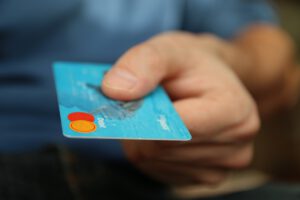
The CARES Act provided Americans with $1,200 in the form of stimulus payment. To date, the IRS has sent more than 140 million payments, with the majority via direct deposit. However, millions are still awaiting their stimulus payment. According to the IRS, it will be sending some coronavirus stimulus payments via debit cards now.
Q1 2020 hedge fund letters, conferences and more
Coronavirus stimulus payments via debit cards
On Monday, the Trump administration informed that the IRS and the U.S. Treasury Department will now be sending the coronavirus stimulus payments on preloaded debit cards, or the EIP (Economic Impact Payments) Cards, this week. Until now, the stimulus payments were made by directly depositing into the users’ bank account, or sending a paper check.
Since mid-April, the IRS has distributed more than 140 million payments worth more than $239 billion. The $2.2 trillion CARES Act promises up to $1,200 to eligible U.S. taxpayers (up to $2,400 per couple) and $500 per child age 16 or younger. Those earning more than $99,000 ($198,000 for married couples) are not eligible to get the payment.
About 10 million Americans are still to get the stimulus payment under the CARES Act. According to the Treasury Department, about four million of these will get the coronavirus stimulus payments via prepaid Visa debit cards
Those who receive the payment on prepaid cards will be able to withdraw the money from ATMs or make a direct purchase with their debit card. They will also be allowed to transfer the funds to their personal bank accounts without incurring any fees. The cards can be used online or at any retail stores which accept Visa products.
Those who get the debit card will be able to check the card balance online, or by mobile app or by phone without paying any fees. To view the balance and transaction history, the recipients may visit EIPCard.com. To access the card online, the cardholders will have to register the card.
These cards carry the same consumer protections, including against fraud, loss, and other errors, as available to traditional bank account owners. Users will get instructions to activate the card with the mailed package. Only one card will be provided per family.
Who will get EIP Cards?
Many of those who will receive the card are those for whom the IRS has no bank account information.
“EIP Cards are being distributed to qualified individuals without bank information on file with the IRS, and whose tax return was processed by either the Andover or Austin IRS Service Center,” the Treasury says.
EIP Cards will be mailed to the eligible recipients this week by the Treasury’s financial agent, MetaBank. These EIP Cards are part of the Treasury’s U.S. Debit Card program. The program supports federal agencies in distributing non-benefit payments.
“Prepaid debit cards are secure, easy to use, and allow us to deliver Americans their money quickly,” Treasury Secretary Steven Mnuchin said in a statement. “Recipients can immediately activate and use the cards safely.”
To get more information on the coronavirus stimulus payments via debit cards, visit the EIP Card website and FAQ page.
Is it a test run for next round?
Issuing stimulus payments via EIP (Economic Impact Payments) Cards seems like a quick way to send payments to those who need it the most. Initially, the IRS said it could take up to 4 or 5 months to send out millions of checks. Now, it is believed that sending 4 million debit cards would bring that time frame down considerably.
It is also possible that the IRS is doing a test run now to check how quickly it can issue the stimulus payments via prepaid debit cards. If the program is successful, it is possible that the IRS will use the debit cards on a bigger scale to send payments under the next round of stimulus payments.
Several proposals have been made for the next round of coronavirus stimulus payments. Some of these proposals have suggested the use of debit cards for sending stimulus payments. For instance, the Automatic Boost to Communities (ABC) Act proposal.
The ABC proposal, introduced by Congresswomen Rashida Tlaib (D-MI) and Pramila Jayapal (D-WA), promises $2,000 per month to each eligible individual during the payment period. After the end of the payment period, the proposal promises $1,000 per month to each eligible individual for a year.
The program proposes to make payments via direct deposit to those for which the IRS has banking information on file, or in the form of an Interim BOOST Card (BOOST Card) if the individual wants it that way. Individuals with no banking information would also get the payment via a BOOST Card.
These BOOST Cards would be prepaid debit cards, which won’t carry any fees, charges, or usage restrictions. Recipients would be allowed to withdraw money at any ATM without incurring any usage or withdrawal fees.
The post Some coronavirus stimulus checks to arrive as debit cards appeared first on ValueWalk.
